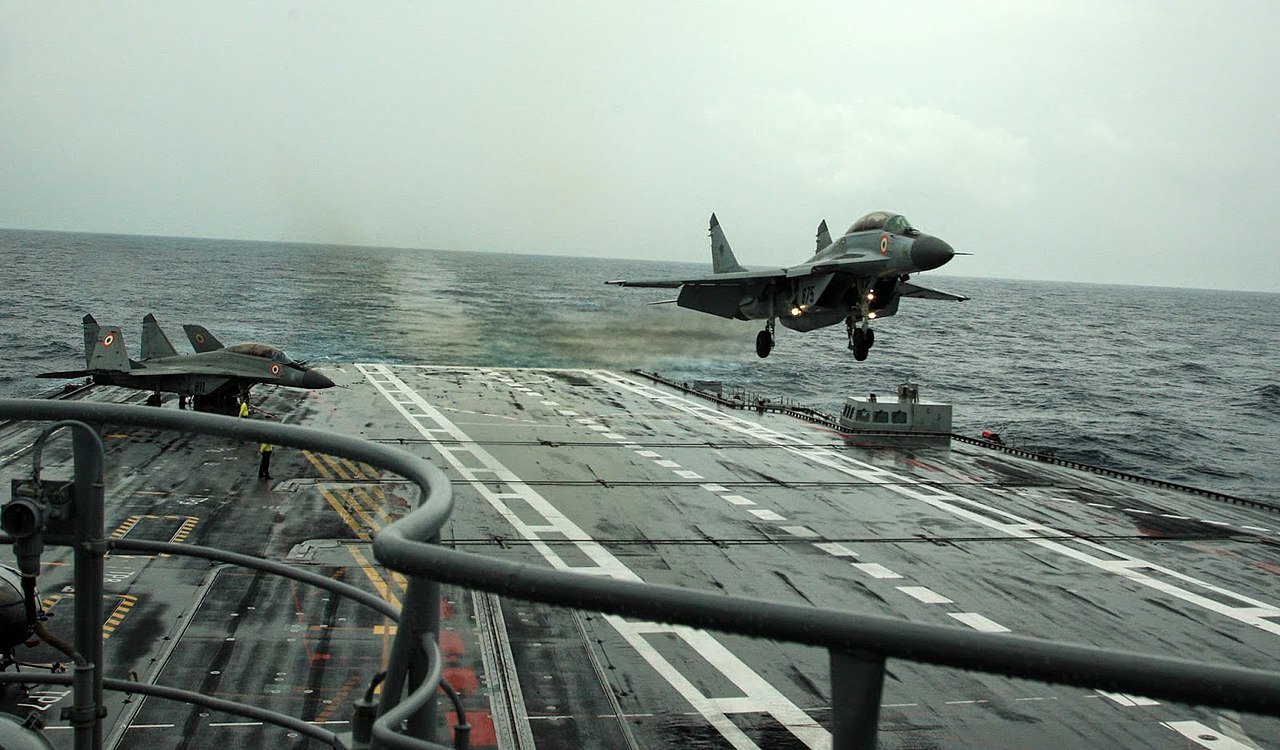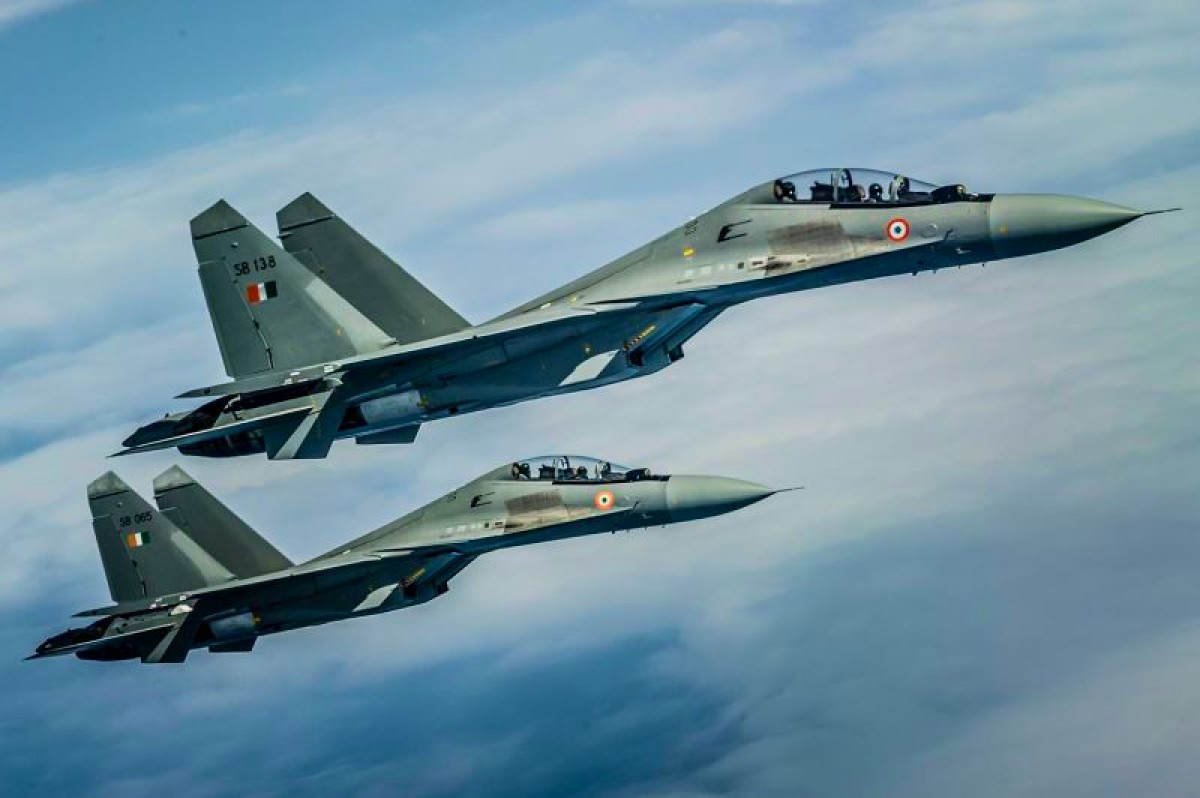Despite several assurances provided by Russia over the months, the Indian Air Force (IAF) has now said in a statement that Moscow cannot fulfill its commitment to provide India’s military with essential defense supplies due to the Ukraine War.
New Delhi has been concerned that the Russian invasion of Ukraine in February 2022 might impact military supplies to India. The IAF’s announcement represents the first official confirmation.
This IAF statement comes months after Russian President Vladimir Putin said that his country would continue to export combat systems and provide military supplies to allies in Asia, Africa, and Latin America.
“Almost all of them have been used more than once in real combat operations,” he told reporters at an arms show.
A parliamentary committee received the latest IAF statement posted on its website earlier this week. Russia had planned a “big delivery” this year, according to an IAF spokesperson, but that delivery may not happen at all.
The report does not mention the specifics of this delivery. The S-400 Triumf air defense system units India purchased in 2018 for $5.4 billion represent the largest ongoing delivery.
Speaking at the Army Expo in Moscow, the CEO of Russia’s Rosoboronexport, Alexander Mikheyev, had said in August last year that they would deliver all five S-400 regiments to India by late 2023. The ongoing war with Ukraine has since led to some tweaking in deadlines.

Not just cutting-edge S-400 air defense systems, India depends on Russia to maintain its fighter jets. IAF also relies on Russia for spares for its Su-30MKI and MiG-29 fighter jets, the mainstay of the service branch.
The absence of these spare parts could create trouble when India aims to bolster its combat capability.
The IAF has an authorized strength of 42 fighter squadrons. However, it operates far less than that. According to the IAF, as time goes on, the overall technical lives of most squadrons are coming to an end.
This could ultimately lead to further reduction of the existing squadron strength, making the unavailability of spare parts from Russia even more difficult.
Despite mounting western sanctions and intense lobbying by the West, India has strengthened its trade, defense, and overall relationship with its traditional partner, Russia. In addition, Russian state news agencies reported in February that Moscow had supplied New Delhi with $13 billion worth of arms in the past five years.
The ongoing Ukraine war and the international sanctions imposed on Russia by most of the world seem to have curtailed Russian defense production, directly impacting its export and delivery commitments. India, could, thus, be on the receiving end of delays.
A spokesperson for the Russian Embassy in New Delhi said: “We don’t have information which may confirm the stated.” Further, Russia’s state export agency Rosoboronexport is yet to comment on the claims made by the Indian Air Force.
India’s Military Dependence On Russia
Even before its official acknowledgment, the Indian Air Force seems to be preparing for an eventuality. According to a document dated February 6, 2023, IAF issued an indigenization requirement of nearly 600 items used in its Russian-origin platforms.
The list reportedly includes spare parts for Mi-17, MiG-29, Su-30MKI, AN-32, Il-76, and Il-78, among spare parts for other platforms.

The concerns about a breakdown of supply chains from Russia have been around longer than that. For instance, in March last year, shortly after Russia launched the invasion of Ukraine, Indian Air Force expressed its concerns regarding the availability of spare parts for the first time.
The service said that it hoped to increase the serviceability rate of its Su-30MKI and other fighter jets to compensate for the shortage in its squadron strength, as previously reported by EurAsian Times.
In a statement to the Parliamentary Standing Committee on Defense, the IAF said that the spare parts delivery schedule could be affected due to the ongoing Ukraine war and the sanctions on Russia, adding that it is assessing the situation.
“There is an interesting aspect that a very large number of Sukhoi-30 and other fighters are on the ground, and we are hopeful that when those spares start coming from this year onwards, we are hopeful that will be able to add some squadrons,” an IAF representative told the committee.

Besides the Su-30MKI, the MiG-29’s upkeep is equally crucial without a new carrier-based fighter jet. The MiG-29K is the only combat aircraft that can operate from the Indian carriers.
According to military experts and policy watchers, the scarcity of spare parts from Russia is not entirely surprising.
Amit Cowshish, former Financial Advisor (Acquisition), Indian Ministry of Defense, told EurAsian Times, “The IAF’s representative’s statement doesn’t come as a surprise. Delays and disruptions in supplies were widely anticipated when the war began. It will be naive to say that this has no impact on defense preparedness, but the question remains about what we did to minimize the impact.”
When asked whether this has the potential to affect New Delhi’s relations with Moscow, Cowshish said, “I don’t think it’ll adversely affect the strategic relations with Russia, though, for a variety of reasons including uncertainty of supplies from Russia, India will have to increasingly diversify its defense cooperation with other countries and pursue indigenous design and development of equipment more vigorously.”
New Delhi has looked westward towards France, the United States, and Israel in the past two decades to lessen its reliance on Moscow. For instance, if media reports are anything to go by, India is set to buy the French Rafale-Marines for its aircraft carrier Vikrant.
The Narendra Modi-led Indian government is also encouraging Indian businesses to work with international producers to increase domestic production under ‘Make in India.’
Although Indian officials have not explicitly stated their willingness to wean the country off Russian military supplies, the delays in the delivery of spare parts could likely make the country look for other options.
- Contact the author at sakshi.tiwari9555 (at) gmail.com
- Follow EurAsian Times on Google News




